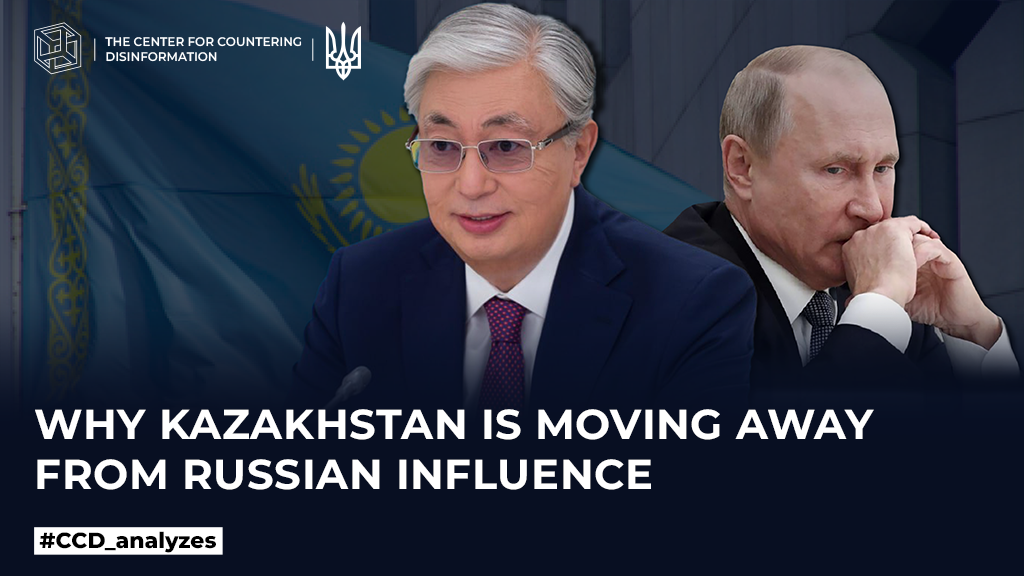The attack on the naval base in novorossiysk, where the amphibious assault ship “Olenegorsky Miner” and the Sig tanker were damaged, did not only affect the image of the russian army. Ruined russian security guarantees for the operation of the port led to a chain reaction that the kremlin did not expect it. The Kazakh authorities have issued a political statement that to ensure the stable operation of this port and, in particular, the oil terminal of the international Caspian Pipeline Consortium, which connects Kazakhstan’s fields with the port of novorossiysk, an intergovernmental dialogue should be organized with major global consumers, first of all with the countries of the European Union. This is not the first unfriendly step of Kazakhstan towards russia. On May 8, the railways of the republic imposed a ban on the transportation of oil products to the russian Black Sea port of taman (krasnodar krai), where an oil depot burned for unknown reasons on May 3.
What does the situation with Kazakhstan mean for the kremlin?
Firstly, the anti-russian manifestations of the Kazakh authorities once again proved moscow’s loss of influence over the leadership of the post-Soviet Asian republics. The trigger for such behavior was the defeat of the “special operation”, which caused a mostly negative assessment in Kazakh society. Moreover, upon putin’s proposal to join the “union state” of russia and Belarus, President K. Tokayev said that his country does not need to join and that it does not need nuclear weapons either.
Secondly, russia’s efforts to involve Kazakhstan in the war against Ukraine remain fruitless. After the introduction of russian troops into Ukraine, the authorities of Kazakhstan repeatedly advocated a peaceful settlement of the conflict and offered mediation in this matter, and President K. Tokayev called for the observance of the territorial integrity of Ukraine.
Thirdly, the obvious deterioration of interstate relations destroys for russia the “gray” scheme of circumventing Western sanctions by supplying russia with advanced microcircuits, semiconductors, and modern military technologies of the EU and NATO countries through the territory of Kazakhstan. So, in 2022, this Central Asian country exported $3.7 million worth of advanced semiconductors to russia, compared to only $12,000 a year before the war.
Fourthly, the kremlin’s hope of replenishing the russian army at the expense of mercenaries from Kazakhstan has been destroyed. Against the background of the escalation of hostilities in Ukraine, advertisements began to appear in Kazakhstan’s information space offering Kazakhs immediate payment of more than $5,000 for joining the ranks of the russian army. The Kazakh government reacted harshly to the violation of national legislation, which prohibits mercenaries, and the National Security Committee of Kazakhstan initiated 10 criminal cases in 2023 based on the facts of the participation of the country’s citizens in military operations on the territory of Ukraine. Although the Ministry of Defense of Kazakhstan does not deny that the territory of the republic is used for the transit of military equipment from “third countries” to russia, recent events indicate that the situation is rapidly changing. It is about the actual expropriation by the Kazakh side of 14 Chinese DJI AgrasT30 drones worth 15.8 million rubles, which were going to russia through the territory of Kazakhstan from Kyrgyzstan. Also, Kazakhstan demonstratively curtails cooperation with the russian federation in the military-technical sphere. Instead, the country plans to purchase 834 ARMA armored fighting vehicles from the Turkish company OTOKAR for $4.4 billion.
Fifth, the image of the russian federation as a reliable transit country of Asian energy carriers was dealt a significant blow. After all, almost 80% of Kazakhstan’s oil exports (53.1 million tons) go through the Caspian Pipeline Consortium, and russia used this transit dependence to put pressure on the Kazakhstan government. The Kazakh authorities are trying to avoid such dependence and are looking for ways to diversify oil supply routes. The advantage is the fact that investors in Kazakhstan’s oil production are American Chevron, ExxonMobil, British Shell, and French Total. Thus, the most active investor in Kazakhstan’s economy in the first quarter of 2023 was not russia ($653 million), but the Netherlands ($1.5 billion), the United States ($1.4 billion), and Switzerland ($875 million). The prospects of Astana becoming the leading hub of Eurasia instead of russia were confirmed by D. O’Brien, head of the Department of Sanctions Coordination of the US State Department, during his visit to Kazakhstan.
❗️Astana’s diplomatic demarche became another slap in the face to the kremlin. Kazakhstan’s government openly expresses doubts about the kremlin’s ability to guarantee the security of its ports and appeals to the international community to protect its main export channel. At the same time, the authorities of Kazakhstan recognize that the main threat to the country is not Ukrainian attacks on Black Sea ports, but purposeful use of the situation by russia to leave Astana in the orbit of russian influence.










